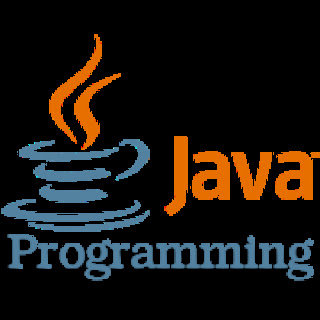Secrets of Java programming language
Things you should know about Java as an high level Object Oriented Programming(OOP)
Java is Platform Independent, which means that you only need to write the program once to be able to run it on a number of different platforms!
Java is portable, robust, and dynamic, with the ability to fit the needs of virtually any type of application.
Java is used to develop apps for Google's Android OS, various Desktop Applications, such as media players, antivirus programs, Web Applications, Enterprise Applications (i.e. banking software, accounting software, transportation software etc), and many more!
Java can be used to create Android applications , iOS( for iPhone users) and desktop applications( computer applications)
Java guarantees that you'll be able to Write Once, Run Anywhere.
Like any programming language, the Java language has its own structure, syntax rules, and programming paradigm. The Java language’s programming paradigm is based on the concept of OOP, which the language’s features support.
The Java language is a C-language derivative, so its syntax rules look much like C’s. For example, code blocks are modularized into methods and delimited by braces ({ and }), and variables are declared before they are used.
Structurally, the Java language starts with packages. A package is the Java language’s namespace mechanism. Within packages are classes, and within classes are methods, variables, constants, and more. You learn about the parts of the Java language in this tutorial.
Java compiler, when you program for the Java platform, you write source code in .java files and then compile them. The compiler checks your code against the language’s syntax rules, then writes out bytecode in .class files. Bytecode is a set of instructions targeted to run on a Java virtual machine (JVM). In adding this level of abstraction, the Java compiler differs from other language compilers, which write out instructions suitable for the CPU chipset the program will run on.
Properties of Java as an high level programming language.
Object Oriented: In Java, everything is an Object. Java can be easily extended
since it is based on the Object model.
Platform Independent: Unlike many other programming languages, when Java is compiled, it is not compiled into platform specific machine,
rather into platform independent byte code. This byte code is distributed over the
web and interpreted by the Virtual Machine (JVM) on whichever platform it is being
run on.
Easy-to-learn: Java is designed to be easy to learn ie System.out.println("Hello world!"). If you understand the basic concept
of OOP Java, it would be easy to master.
Secure: With Java's secure feature it enables to develop virus-free, tamper-free
systems. Authentication techniques are based on public-key encryption.
Architecture-neutral: Java compiler generates an architecture-neutral object
file format, which makes the compiled code executable on many processors, with
the presence of Java runtime system.
Portable: Being architecture-neutral and having no implementation dependent
aspects of the specification makes Java portable. Compiler in Java is written in
ANSI C with a clean portability boundary, which is a POSIX subset.
Robust: Java makes an effort to eliminate error prone situations by emphasizing
mainly on compile time error checking and runtime checking.
Multi-threaded: With Java's multi-threaded feature it is possible to write programs
that can perform many tasks simultaneously. This design feature allows the
developers to construct interactive applications that can run smoothly.
Interpreted: Java byte code is translated on the fly to native machine
instructions and is not stored anywhere. The development process is more rapid
and analytical since the linking is an incremental and light-weight process.
High Performance: With the use of Just-In-Time compilers, Java enables high
performance.
Simple Java structure
public class Main
{
public static void main(String[]args)
{
System.out.printIn("your code goes here");
}
}
Don't forget to comment & share.



Comments
Post a Comment